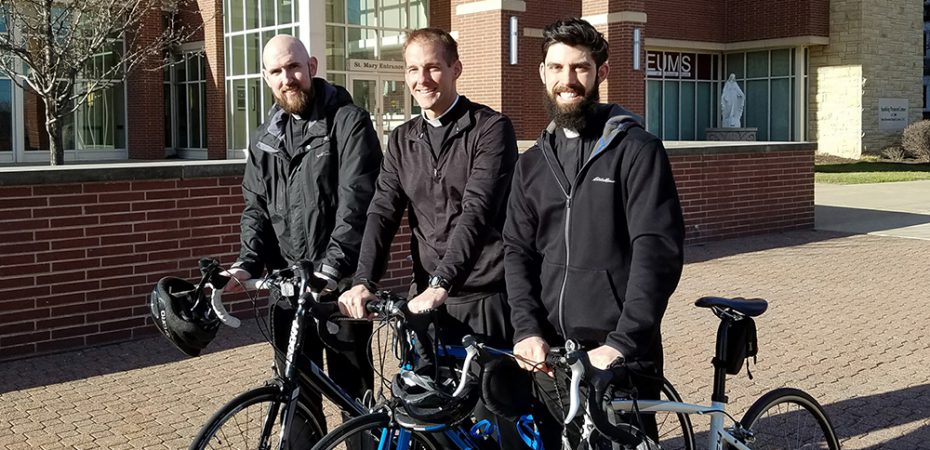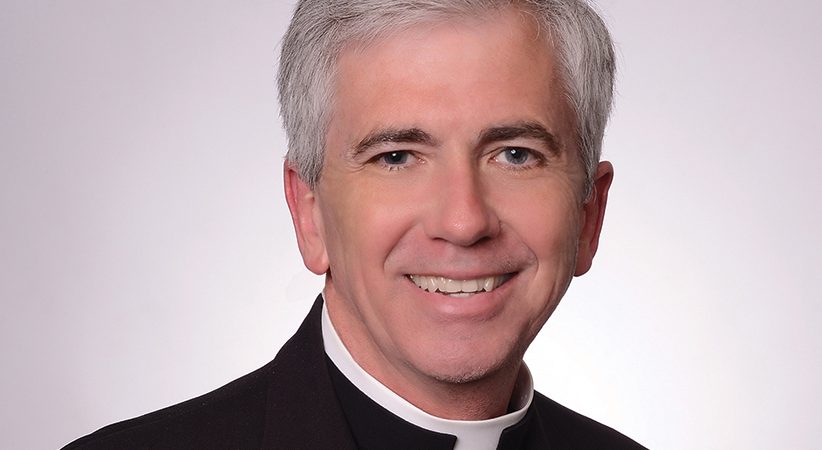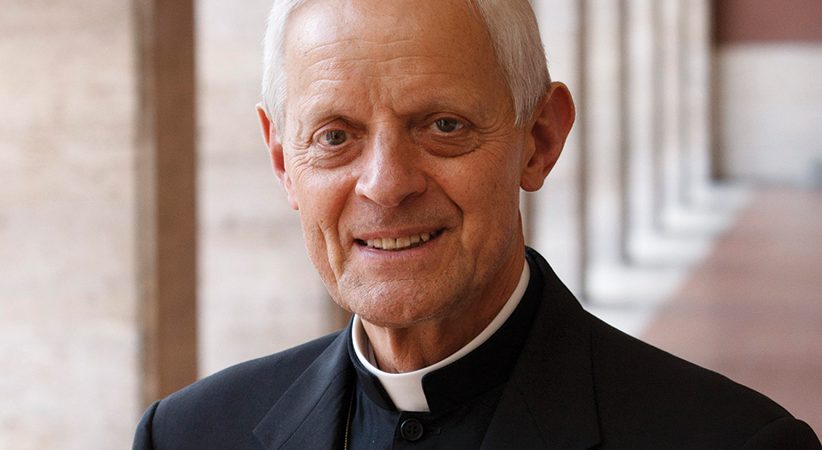Fraternity and Friendship
Priests need good priest friends and healthy relationships with lay friends
Msgr. Michael Heintz Comments Off on Fraternity and Friendship
 Priests leave active ministry for a number of reasons. There are innumerable stressors and challenges in priestly ministry; we have all experienced some of them. In my experience, the most at-risk priest is the priest who (a) has no other priest friends or (b) has no lay friends. It strikes me that both priestly fraternity and deep friendships with laypersons — particularly married couples and families — are essential for a healthy, happy, holy and fruitful priestly life.
Priests leave active ministry for a number of reasons. There are innumerable stressors and challenges in priestly ministry; we have all experienced some of them. In my experience, the most at-risk priest is the priest who (a) has no other priest friends or (b) has no lay friends. It strikes me that both priestly fraternity and deep friendships with laypersons — particularly married couples and families — are essential for a healthy, happy, holy and fruitful priestly life.
The fraternity so natural in seminary life is harder to find in the diocesan priesthood. In seminary, men live, pray, study, dine and recreate within a community that is not easy to overlook, much less escape. Transitioning from seminary to parochial life can be experienced like culture shock. The fraternity so effortless in seminary is not at all easy to replicate in parish life.
Two or even three priests may live and work together, but that does not guarantee that there will be a healthy community or fraternal life within the rectory. Fraternity in priestly life demands a kind of intentionality, one that is shared by others. Even if one cannot find or compel desired fraternity in a rectory, a priest can certainly work to foster it among brothers who recognize its importance to priestly life and health, and who share a commitment to it.
Yes, it’s work. Yes, it means working to coordinate calendars and schedules. Yes, it means making it a priority, not necessarily over more pressing pastoral obligations, but nonetheless as a critical element in maintaining personal health and well-being, and not least in fostering holiness.
Priestly fraternity can, of course, take many forms: preparing a meal together, sharing hobbies or experiences together, praying together. Some modes of fraternity are light; others more serious. And to be honest, there are degrees of vulnerability we are willing to show and levels of intimacy we are willing to allow to our different brothers in the priesthood; this is natural and healthy.
But a priest who cannot be vulnerable with a brother priest too often ends up compartmentalizing part of himself, and this can be quite unhealthy, not to say dangerous. I have discovered in my own life how important my brothers in the priesthood are to me. They help to hold me accountable. They make me a better priest. They support my vocation.
But in addition to priestly fraternity, a healthy and holy priesthood requires deep friendships with those who are not ordained. Equally nourishing and confirming for any priest are friendships with lay folks, couples, families and also religious. Becoming “part” of various families in the course of one’s ministry (being there for them when Grandma was dying; walking with a couple as they prepare for marriage and then baptizing their children; friends from our own high school or college days with whom we have managed to keep in touch, etc.) is one of the greatest graces we receive as parish priests.
And the witness of married couples and religious whom we know confirm our own vocation, just as our own vocation — lived out with fidelity and joy — can confirm theirs. Priests who lack these life-giving kinds of friendships can easily become remote, unapproachable, seemingly indifferent and aloof. Such friendships keep us real. They can often stretch us in healthy ways, and demand that we make a gift of ourselves.
Counterintuitively, I have found that my friendships with married couples enrich my own understanding of and appreciation for my commitment to celibate chastity in direct proportion to my ever-deepening admiration for their witness to married love and family life.
Priests need good priest friends and healthy relationships with lay friends. Both are necessary, the former for supporting our priestly vocation, the latter for confirming it. The lone ranger priest, who has few, if any, priest friends, or who does not live and minister in communion with his local presbyterate, as well as the priest who seems out of his element relating to anyone other than a fellow cleric, each impairs in different ways the robust and healthy affective and spiritual life requisite for fruitful priestly ministry.
A fruitful and healthy priestly life depends principally on a living relationship with Christ and a desire for holiness. But that alone is insufficient. Also necessary is a range of healthy relationships, not least a rich priestly fraternity, but also the friendship of lay and religious who accompany us as we accompany them on the journey of discipleship.
MSGR. MICHAEL HEINTZ, a priest of the Diocese of Fort Wayne-South Bend, serves as academic dean and director of intellectual formation at Mount St. Mary’s Seminary in Emmitsburg, Maryland.





